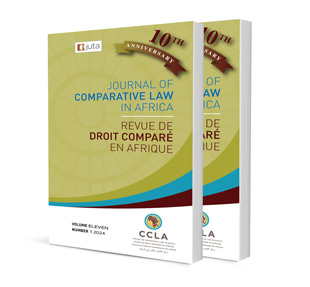A Comparative Analysis of the Right to Protest Under the Nigerian Public Order Act and the South African Regulation of Gatherings Act

A Comparative Analysis of the Right to Protest Under the Nigerian Public Order Act and the South African Regulation of Gatherings Act
Author: Cyril Ekeke
ISSN: 2521-2605
Affiliations: LLB, BL (Nigeria) LLM, LLD (Pretoria), Senior Lecturer, Federal College of Education, Rivers State, Nigeria
Source: Journal of Comparative Law in Africa, Volume 11 Issue 1, p. 31 – 83
https://doi.org/10.47348/JCLA/v11/i1a2
Abstract
The handling of the #EndSARS protests in 2020 and 2021 by the Nigerian authorities has once again brought to the fore the restriction of the right to protest in Nigeria, and in Africa as a whole, and the need to compare the right to protest under various African jurisdictions. Protest can be the catalyst for positive change in the social, political, economic and cultural life of a country, and therefore the right to protest is guaranteed under international, regional African and domestic human rights legal frameworks. In Nigeria, the Public Order Act of 1990 is designed to give effect to the provisions of the Constitution in terms of the appropriate and peaceful conduct of protests. Likewise in South Africa, the Regulation of Gatherings Act 205 of 1993 regulates the holding of public gatherings and demonstrations, in alignment with the provisions of the Constitution. This paper applies doctrinal methodology to undertake a comparative study of the right to protest under the Nigerian Public Order Act and the South African Regulation of Gatherings Act, specifically because South Africa has seen a groundswell of protests in the past few years with minimal restrictions. This paper finds that despite some shortfalls in the Regulation of Gatherings Act, it is a more potent law than the Public Order Act in ensuring the right to protest. This paper further argues that the robustness of the Regulation of Gatherings Act could serve as a template for strengthening the Nigerian Public Order Act to fully guarantee the right to protest in Nigeria.

